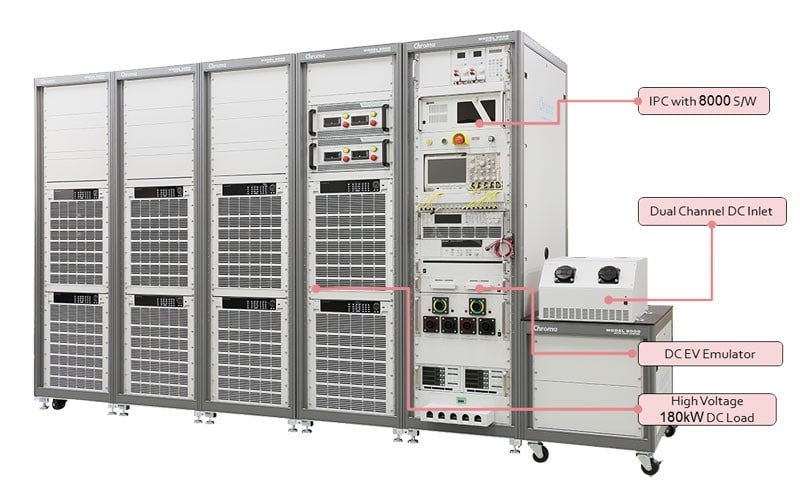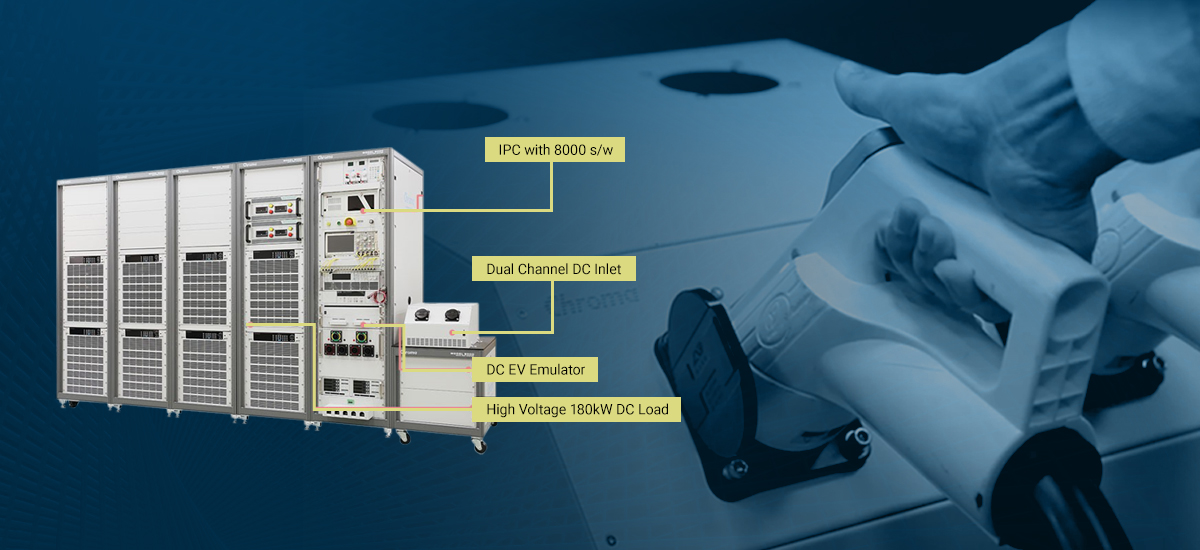Market surveys indicate that, by 2025, there will be over 3 million public charging stations for electric vehicles (EV) globally. New EVs also carry larger capacity batteries in order to reduce the mileage anxiety amongst drivers. Although enabling a larger cruising range, this also necessitates a shortened charging time, thus prompting the rapid development of EV charging stations (EVSE) with DC Fast Charge capability.
Cost evaluation remains a key factor when automakers and charging equipment manufacturers consider building dedicated public charging stations. In particular, building and installing DC Fast Charge EVSE is much more expensive than a basic low power AC EVSE. To minimize costs, dual or multi-coupler DC EVSE stations are becoming increasingly visible on the market, with advantages including a reduced area needed for the charging station as well as lower hardware and installation costs.
The Chroma DC EVSE test systems meet the test requirements of all major international communication and coupler standards including ISO15118/DIN70122 (CCS – USA/ EU), CHAdeMO (Japan), and GB/T (China). The Chroma EVSE test system is based on a modular set of world class electrical instruments, analyzers, and EV Emulators that deliver an elevated level of flexibility to our customers for future expansion, as well as minimizing initial investments when evaluating PLC or CAN based high level communication test scenarios.
The test architecture is based on the Chroma 8000 ATS with complete automated test functionality. The software contains built-in test cases conform to standard definitions and a user-friendly interface that offers convenient test parameters editing according to the various test requirements.
Chroma’s Fast Charge DC dual-coupler EVSE test solutions have recently been adopted by multiple electric bus and EVSE manufacturers with great success. As an example, Chroma has delivered a 180kW dual-coupler automated EVSE test stand that is capable of testing a single 180kW EVSE output, or alternately testing two 90kW EVSE outputs at the same time. When any abnormal communication or fault condition is encountered, the tester will automatically protect the integrity of the customer’s product.
Watch the video below for a short introduction of the system’s features and interface operation:
▲Chroma EVSE Testing

▲Chroma 8000 EVSE ATS
Chroma is a worldwide provider of programmable power testing instrumentation and automated systems including new bidirectional and regenerative solutions to the EV industry. Chroma’s EV/HEV Automated Test Systems address the power conversion testing of several power electronic units including BOBC Chargers, Wireless Chargers, DC-DC Converters, HEV Controllers, and Motor Drivers. Their regenerative battery cyclers for charge / discharge testing of cell, module, and packs provide battery simulation as well and are in use all over the world. Chroma’s EV Automated Test Systems are ideal for design validation and functional testing.
